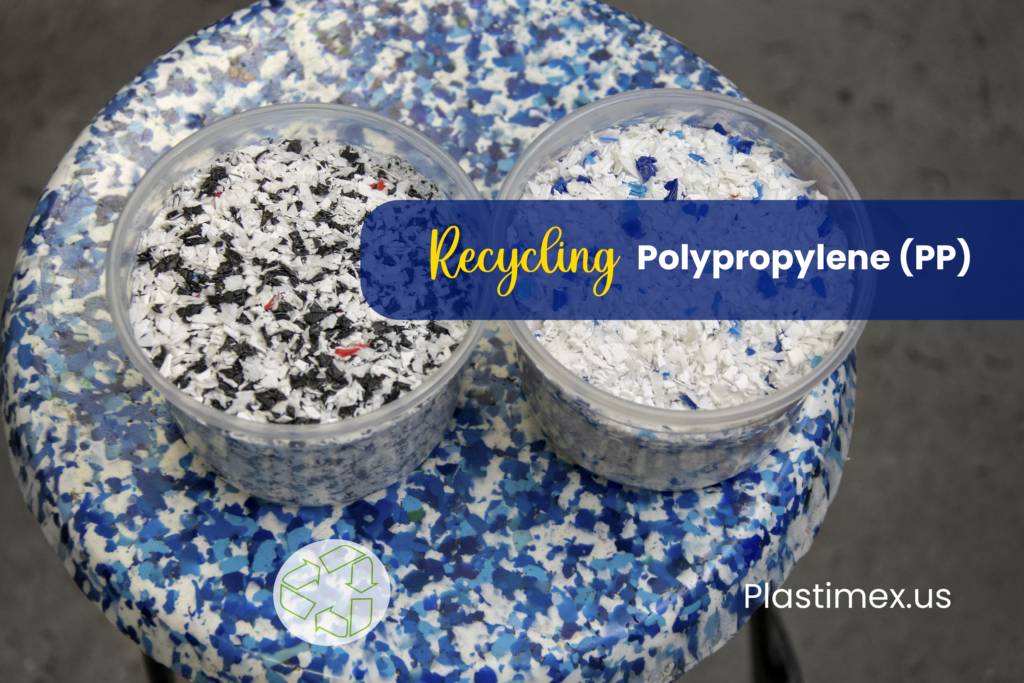Polypropylene has multiple uses. Very easy to find in laboratory equipment, automobile parts, medical appliances, and even food and drink containers, its properties allow it to be in contact with food without affecting it, making it an inert and innocuous material. In addition, thanks to its high chemical resistance, it is one of the most used plastics for different industries and stands out because it is a 100% recyclable material. Learn everything you need to know about polypropylene recycling
What is polypropylene?
Polypropylene is a thermoplastic resulting from the polymerization of propylene. Propylene is a by-product in the form of a gas obtained from oil refining. Therefore, polypropylene is a derivative of petroleum that goes through countless processes before ending up as a plastic. It is important to mention that this material provides many advantages such as its resistance, lightness, and quality as an insulating material. The main advantages it offers are resistance to acid or alkaline corrosion; it is waterproof; resists high temperatures; It is a very versatile material and is 100% recyclable.
Uses for Polypropylene
One of the most common uses of polypropylene is to manufacture containers that come into contact with food, however, it is not the only use that we can give to this material, since it stands out for its adaptability. These are some of the most notable uses:
- Fuel containers
- Medicine containers
- Caps
- Upholstery fibers
- Automobile parts
- Toys
How is it recycled?
Polypropylene is 100% recyclable, however, to maintain its quality and resistance it is important to treat it accordingly. The most widely used methods for recycling this material are extrusion and injection. Although PP is easy to recycle, it is important to note that it cannot be subjected to unlimited recycling, since the quality of the pellets obtained between recycling and recycling decreases. The process is as follows: when the polypropylene enters the recycling plant, it goes to a conveyor belt where it is subjected to a selection and classification filter according to its type, where it is subsequently crushed. Afterward, since the PP has been turned into dust particles, it is washed with water to remove impurities from it. Subsequently, the extrusion process begins, where the pellets are obtained with which the final raw material of polypropylene will be created to manufacture new products.
Benefits of PP recycling
One of the main benefits of recycling polypropylene is the reduction in the consumption of finite crude resources such as oil and propane gas. In addition, the recycling of PP has positioned itself as a very important and economically viable option on a large scale.

